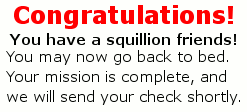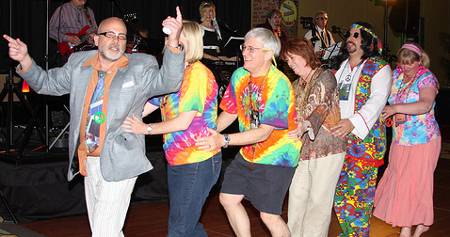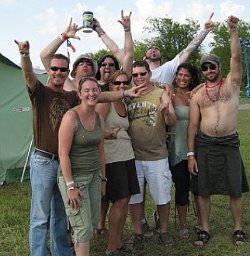
Social media is more than just a little bit special to me. Perhaps, if you have been using social media for a while, you feel this way, too. I have lived with my Internet connection close by my side for many years, like a good friend. Just like any longtime friend, it has changed. It has built me up, and it has let me down.
Social media has helped me to meet many wonderful people that I never would have met elsewhere. Those people include some of my closest friends of the last 15 years, and even my wife and mother of our three children, whom I met back in 2000. I think a lot of people can relate to how I feel about this special part of my life where I laugh, learn, and spend many hours working.
I still cherish many memories of times when social media was simpler. I guess it must feel kind of the way my 94 year old grandmother feels when she recalls her earlier days. The pace was more manageable, and people would still wave from their window in a train, and take more time to visit with the passengers around them.
Today, I want to encourage you to slow your social media train to avoid a crash. Yes, I said slow down … take your time. Read about one of the worst hazards of social media, and consider how you may avoid it.
Don’t Let Your Social Media Train Derail
Over the past few years, we invited the whole world to board the “Social Media Express”. It has created a time in our society which can adequately be termed “astonishing”. Now that the train is full, we all want to go somewhere, and get there fast.
Sometimes it seems that social media is like a runaway train with a huge payload of information and passengers just sitting there oblivious to the derail ahead of them. I have ridden this train to many derails, such as Yahoo! Groups that fell apart, and services that eventually phased out and friends lost communications. In cases where I looked far enough ahead, I could see it coming and warn my friends and we could slow the train down to resume our comfortable ride.
I feel very fortunate for the many people I met through social media and still communicate with regularly after teens of years. It took some effort to avoid the scattering effect of a train derailment, but it has been very worthwhile to me.

The big crash that I have emphatically warned people about is trying to “follow”, “friend”, “connect”, and etcetera, with excessive numbers of people with whom they never have any intention or ability to build a meaningful relationship.
I understand the huge urge for people to feel popular. I hear it all the time, even from people who have no real agenda to have a squillion connections, but just enjoy the appearance of being popular. If I had to point a finger at one single overriding challenge in social media, this would be it.
What so many people overlook is that having real communication and meaningful relationships with a smaller group who really listen to you or care about you is much more rewarding. This is true for both personal and business purposes, because it only takes about 150 people sharing something worthwhile to set it on a path to “viral” communication. Don’t try to argue this point with me, because I really will win this one.
Robin Dunbar Meets The Social Media Express
Have you ever heard of Dunbar’s Number? I will explain with a quote from Wikipedia:
I watch people trying to push Dunbar’s Number to a breaking point every day. Once they run through each passenger car on the “Social Media Express”, they burn out and jump off the speeding train when they don’t get what they hoped for. They don’t pull the hand brake, they don’t say goodbye, and many of them will never board the train again. They broke their social media train.
I can certainly place a good amount of blame on the implied importance of somebody with a lot of “friends” in social media. After all, I must be more important if I have xxxxx followers on Twitter and xxxx friends on Facebook, right?
There is another big challenge created by the many desperate people producing deafening levels of static while trying so hard to become marketers. With enough of that static, it causes many people to build up stronger than ever communication barriers. This overheats the train’s brakes, and sends more than a few passengers jumping off between stations.
Can You Share in My Guilt?

I witness many examples of pending challenges in my own use of social media. For example, I tend to tune out a lot just in order to keep up with people communicating with me directly. I am always available to anybody on this Internet, but it takes a lot of effort to reach out and see what all of those people have to say. So I let them come to me. I have even found out shamefully late of people who died, because it took me a long time to make my rounds to their Facebook profile.
I do my best to put friends and interesting people into lists, and I try to keep up, but nobody is immune to the challenge of “keeping up”. Many of the people I used to hear from every day stopped participating in social media, because they felt burned out and like nobody heard them anyway. Twitter makes a profound statement in this area, and has a horrible churn rate. It is not just specific networks, either. Many bloggers have expressed concerns that although people are reading, their comments have diminished. I certainly see it here, as well. Even while my readership is consistently high, it seems that many people don’t want to discuss topics the way they used to.
Do Those Big Numbers Really Matter?
I have studied this dilemma for years, and I know the importance of reaching a lot of people. Sure, it may increase your odds, right? Well, the truth is that if those are not the right people, and they are just a number for the sake of numbers, your impact will not be proportionate with your efforts. When you see somebody with a lot of friends, followers, and whatever you want to call them, it generally happens for one of two reasons: They either sought a lot of people who were also looking for big numbers for the sake of numbers, or they earned those numbers by reaching an appropriate audience who cared what they have to say and pay attention. One method imitates popularity in order to appear important or to throw spam at the wall and hope it sticks, and the other method is to do something people care about and presenting it to the right people.

I recently looked at my Twitter followers to find that many thousands of them had not used Twitter at all in the last six months. I filtered them out by those who had not sent an update in the last 90 days, and found that for many of them it had been over six months. I unfollowed 1,000 of them, which were mostly just nameless and faceless to me, and then I stopped. I realized that it was a waste of time to keep sorting through the graveyard of fallen Twitter users. I had only followed them in the first place because they had followed me, so I don’t feel some huge loss of a close friend.
Back before it became so popular to try and follow everybody under the sun, I used to see a huge value in Twitter. I liked it enough that I was asked to write a book about Twitter. I wrote it, and it was pretty good. I published it in July 2009, but I wish I had written it a few months sooner, before the Twitter graveyard started filling up.
Back in the good old days of social media, even as recently as Twitter, people paid attention to others. There were more conversations, and the conversations turned into friendships, and many times into business.
Today, I tweet something and it can sometimes seem to go unnoticed, even if it is totally hilarious or brilliant. Very few people respond, and almost nobody retweets things, compared to earlier years. Is it because they all hate each other, or is it because they simply went blind and only communicate if you go directly to them?
It is a tough call, but the numbers clearly indicate a speeding train.
Do You Slow Down and Say Hello Enough?
As a person who works and socializes here in this social media world, I have sometimes wondered “Is it me? Did I do something that changed things? Did I contribute to the extra hustle and bustle?” I really don’t think so, but I always try to keep myself in check.
I still find great value in many areas of social media, and it is still a very good place to make friends, build relationships, and produce new business. In fact, far better than any other, but it requires greater effort than ever before. It is not as easy as it used to be, and it can be more challenging than earlier years. It sometimes makes me wonder if I hadn’t been in my industry for so many years, what it would look like to me today. I have watched it evolve, and I have evolved with it nicely, but for somebody new here, I think it could get pretty overwhelming, and lose its luster quickly.
The Social Media Train is Human-Powered
I have written volumes of thoughts on the human aspects of our technical world. I write it in books, blogs, and I talk to groups about the importance of the real human communications that social media is so great for.
We control the pace of the train we are on, and the direction it travels. There are no rails, and plenty of great people and places to see. I only hope that more people will enjoy the ride, consider the people, stop running from car to car seeking more people to irritate with bad marketing, and avoid the train wreck.

Here is just a small selection of things I have said to try and caution others, and help them become more cognizant of the people around them. The longer list is found throughout my blog archive and in my books. I would not say these things if I didn’t mean them, and can stand behind them.
- Twitter Follower Frenzy
- Jack Walden Teaches Social Media
- Follow, Unfollow, Re-Follow … What?!
- The Value of Social Media Marketing
A Story from My Social Media Train Car
Something slowed my train nicely a few days ago. As I was unfollowing that 1,000 people on Twitter, as I mentioned, I came across several old friends who had dropped off the face of Twitter. One of them was Tom Roquemore, whom I met on Twitter a couple years ago. I like Tom, but he stopped using Twitter last October, and we hadn’t communicated since then.
Remembering good talks we had shared, I put him on my list of people to contact by phone. Before I even got around to calling him, my phone rang and it was Tom. We talked for a while and it was great to hear from him again. The timing was kind of uncanny, but we probably would have talked even sooner if our train was just moving a little slower.
How Does Tom Roquemore Affect My Social Media Train?
I have used social media, in one way or another, since before Yahoo! purchased GeoCities. That has been a long time, and I have seen a lot in those passing years. One thing that I have found to be the most valuable of all is to focus on a core group of the right people who really listen and feel strongly about the value you represent. That is where true and worthwhile popularity stems. It is like the initial spark of an explosion, and it starts very small. This holds true in the largest of all marketing campaigns, and in the smallest of groups. If you focus more on value over volume, your success and your enjoyment will be far greater. You just have to slow the train to recognize it, and find the truth in what I am telling you.
If some of you great people will slow down and add your comments here on my blog, maybe we could show others the start of a better habit. A habit of taking the time and effort to bring better communications back to social media, and not just rushing to the next thing that seems urgent.
Conga line image credit to fallingrock via Flickr



